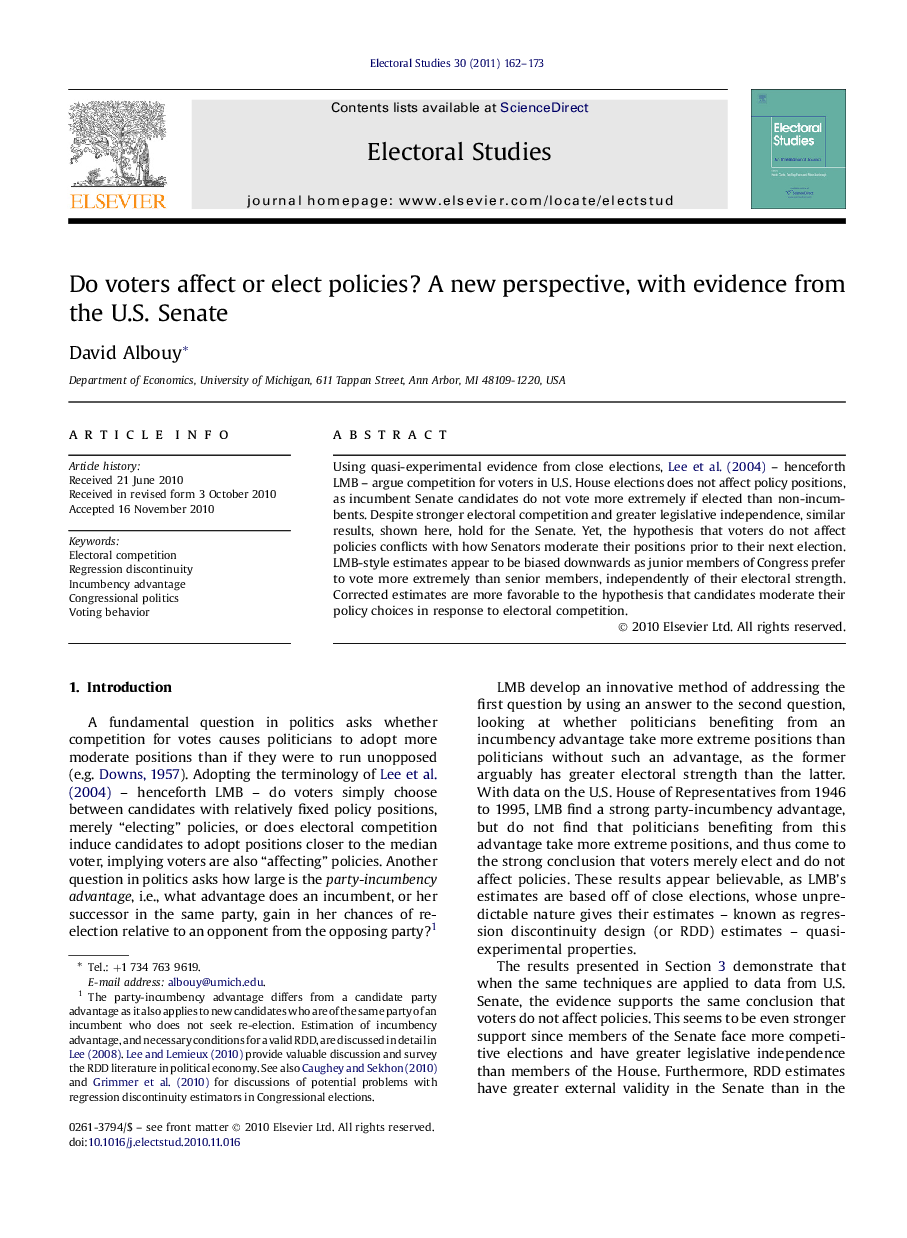| Article ID | Journal | Published Year | Pages | File Type |
|---|---|---|---|---|
| 1052240 | Electoral Studies | 2011 | 12 Pages |
Using quasi-experimental evidence from close elections, Lee et al. (2004) – henceforth LMB – argue competition for voters in U.S. House elections does not affect policy positions, as incumbent Senate candidates do not vote more extremely if elected than non-incumbents. Despite stronger electoral competition and greater legislative independence, similar results, shown here, hold for the Senate. Yet, the hypothesis that voters do not affect policies conflicts with how Senators moderate their positions prior to their next election. LMB-style estimates appear to be biased downwards as junior members of Congress prefer to vote more extremely than senior members, independently of their electoral strength. Corrected estimates are more favorable to the hypothesis that candidates moderate their policy choices in response to electoral competition.
► Regression-discontinuity estimates find Senate incumbents vote like non-incumbents. ► In a static model, this supports the hypothesis that voters do not affect policies. ► This hypothesis is contradicted by Senators’ moderate voting before elections. ► Senior members of Congress vote more moderately than their junior colleagues. ► In a dynamic model, the hypothesis that voters do affect policies is strengthened.
